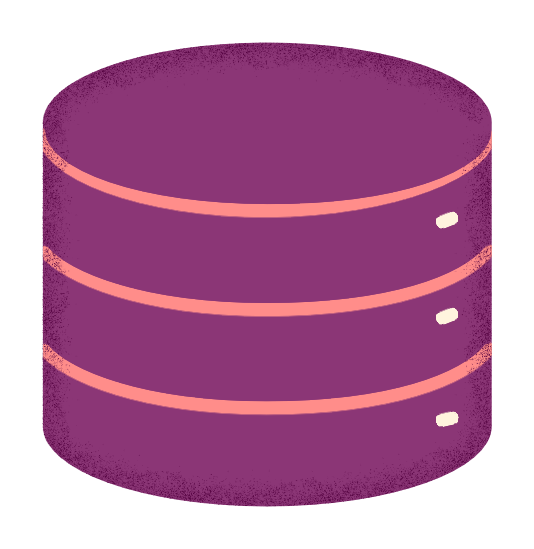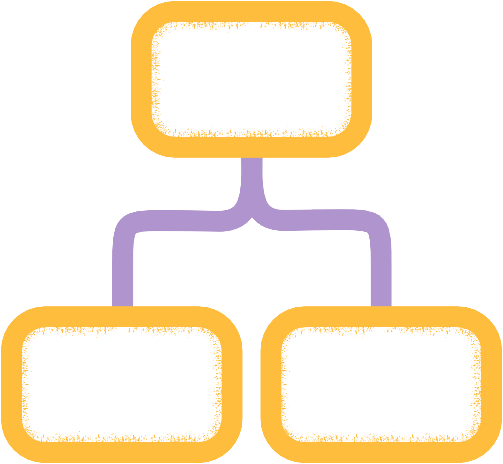



Making databases
accessible to everyone
Mathesar provides a spreadsheet-like interface to PostgreSQL databases. Built by a nonprofit, 100% open source.
Building Better Data Tools
At Mathesar Foundation, we believe working with data should be easy and accessible for everyone. Using databases shouldn't require technical expertise or expensive, closed-off tools. Databases are incredibly powerful, but they're often trapped behind complex interfaces that are hard to use or limit how people can access and share their data. We want to change that by building user-friendly tools that unlock the power of existing databases without sacrificing accessibility, portability, or extensibility.
Mathesar is our answer: an open-source platform designed to unlock the full potential of PostgreSQL, one of the most powerful and trusted open-source databases. Mathesar is easy to use, interoperable, and extensible, while also giving you complete control over your data. As a nonprofit, we're committed to keeping Mathesar 100% open source and available to everyone—because better ways to work with data mean better decisions, and better decisions lead to a better world.

Our Staff
+ databases in our personal life
We're a group of industry veterans with a love of open source. Our core team members have founded startups and worked at a variety of companies – from nonprofits to large multinational companies. We've also led projects in large open source communities like Creative Commons, CiviCRM, and Ember.js.

Kriti Godey
CEO & Project Lead
"My husband and I use a database-backed application to track movies. Movies we own, movies we want to watch, movies we’ve watched. I had to write a bunch of code for it, but it would have been much faster to build it using Mathesar – if it had existed!"

Sean Colsen
Engineer
"I have an older relative who has been compiling family genealogy data for years through an arduous process of paper forms in the mail. I'd like to digitize it for future generations! With Mathesar, our family will eventually be able to collaboratively manage this data and visualize it in new and exciting ways!"

Pavish Kumar Ramani Gopal
Engineer
"I intend to use a database to maintain a personal diary, but with data tracking! I'll be logging my daily life: my anime watching habits, exercise routine, work progress, social interactions etc. I can analyze this data to gain valuable insights into my own behavior and lifestyle. Mathesar is going to make all of this a breeze!"

Brent Moran
Technical Strategy Lead
"I'm using a database (and planning to use Mathesar) to store and analyze info I collect about various countries. e.g. cost of living, tax rates, population statistics, economic statistics, etc. I'm tentatively calling it the Country Comparator."

Anish Umale
Engineer
"I'm using a database to enable people to make better choices about which credit card to get. In the current market, credit card benefits, eligibility requirements, etc. frequently change. Mathesar allows me to make these frequent changes quickly and without much hassle and share the updated data easily."

Adam Mullinax
Director of Growth and Finance
"I’ve been slowly starting to build a small wine collection and keeping track of all of my notes has been a huge pain. Using a system like Mathesar would allow me to easily maintain the information and compare wines across vintage, varietal, region and producer."

Zack Krida
Product and Community Lead
"I'm using Mathesar as a training log for my rock climbing sessions. I'm able to group and keep track of climbs in different areas, along with their difficulty. I previously used a basic spreadsheet for this, but without real relationships connecting my data, I quickly lost track of my progress."
Our Board

Kriti Godey
CEO, Mathesar Foundation

Ian Alas
Special Projects, Office of Reid Hoffman

Samantha Bates Weinstock
Visiting Researcher, Henkaku Center, Chiba Institute of Technology; Executive Director, US-Japan Innovation Institute
Mathesar is built by 100+ Contributors
Like Mathesar? Want it to be better? Get involved and contribute to shaping the future of the project!





























